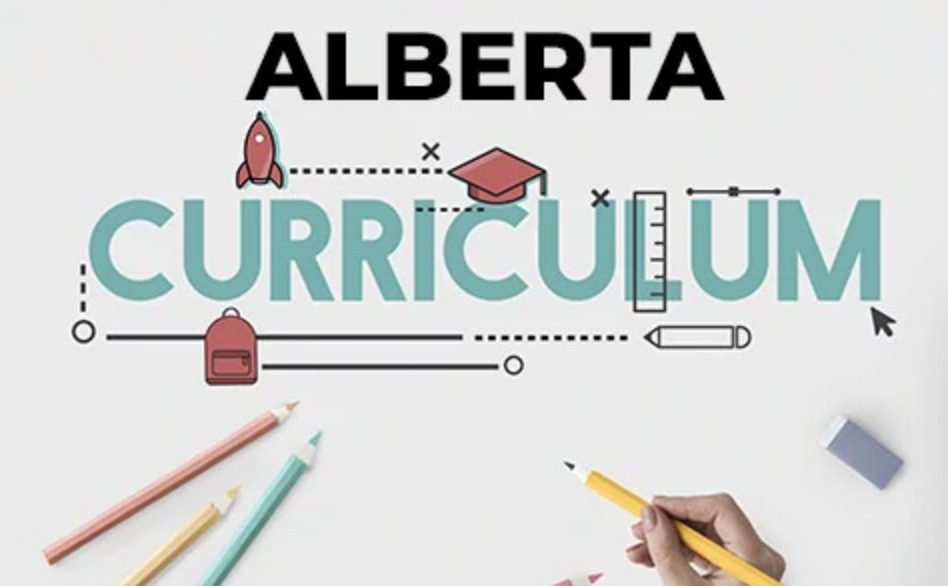Alberta’s draft elementary school curriculum has already achieved one important educational benchmark: it has ignited a detailed and rigorous debate.
For the UCP government, the true test will be whether the government pays any attention to the many critical voices out there and actually tweaks the final version. Given past experiences with Jason Kenney’s administration, it’s likely to flunk.
The draft curriculum dropped this week is a huge document but that hasn’t stopped parents, teachers and academics from plowing through the detail and coming up with a conclusion.
Not surprisingly those conclusions depend on whether the reader is a fan or not of the UCP.
Conservative columnist Licia Corbella claimed educational experts made privy to the curriculum before its release were universally giving it an A-plus.
The firestorm on Twitter and Facebook after the release indicate the admiration is not so universal.
It’s like the people who wrote this have never met a child, said University of Alberta education prof Carla Peck.
If nothing else, Education Minister Adriana LaGrange deserves a few marks for posting the curriculum for review. Way too many UCP initiatives, from coal mining policy to doctors pay, have been done by pronouncement without consultation or even a glimmer of warning.
A demerit or two should be awarded, however, for the plan to implement the curriculum in some schools as a pilot this September. That seems like a pretty tight timeline and puts the kids who are in pilot schools at some risk of being stranded with a deficient curriculum for a year.
The process calls for the new curriculum to roll out in 2022.
There’s also the underlying questions about the entire process. The curriculum has been a document in progress through the waning days of the Progressive Conservatives and the four-year NDP government. The UCP tossed much of the previous work, particularly in terms of the social studies portion, in favour of a revision that largely cut the Alberta Teachers Association out of any involvement.
LaGrange says the government heard from parents during the 2019 election campaign that it was time for a renewed focus on essential knowledge and skills. LaGrange said.
Some of the new curriculum is getting praise, including inclusion of financial literacy from early grades and a focus on computer skills. Changes the previous administrations had proposed to math teaching remained and are considered to be an improvement on current curriculum.
The plan for teaching history has attracted the most criticism.
While indigenous topics pop up each year from Grade 1 to Grade 6, critics argue delay of discussion of treaties to Grade 4 and residential schools to Grade 5 is problematic. Critics say that doesn’t match up with the call to action out of the Truth and Reconciliation Commission.
The list of topics to be covered by the Grade 2 social studies curriculum is particularly bonkers. Alberta’s seven-year-olds will be learning about everything from ancient Greece and Rome to world religions, Charlemagne and Kublai Khan. The bullet point description reads like a Fringe festival comedy on the history of the world in 45 minutes.
Some academics see this scatter-gun approach as regressive and old fashioned, stuffed with lots of facts to memorize and precious little thinking or context. Plus they predict it will turn the little guys off history altogether.
It does sound a bit like a turn of the 20th-century English private school education.
The curriculum also is stuffed with references to religion. It’s not limited to the Christian religion, but it seems an odd concentration in an increasingly secular society.
There is one clangingly odd detail which has particularly drawn attention.
Kenney’s grandfather, Mart Kenney, was a band leader in the 40s. Whoever wrote the curriculum (Jason Kenney swears he was not involved) decided to revive Mart’s fame with a reference to how band leaders like Mart and Glenn Miller gave jazz a bigger sound.
This has led to a spirited debate on Twitter about a) is swing really jazz; b) who ever heard of Mart Kenney; and c) if you want to talk about jazz and Canada where are Oscar Peterson and Tommy Banks?
LaGrange claims she wants to hear the views of Albertans on the draft curriculum. The Alberta Teachers Association is asking all teachers in the province to offer their views to its own special review of the draft.
The government will hear plenty of opinions to consider from academics, teachers and parents. Voters will eventually get to grade them on their listening skills.
Photo Credit: Calgary Home Tutoring








